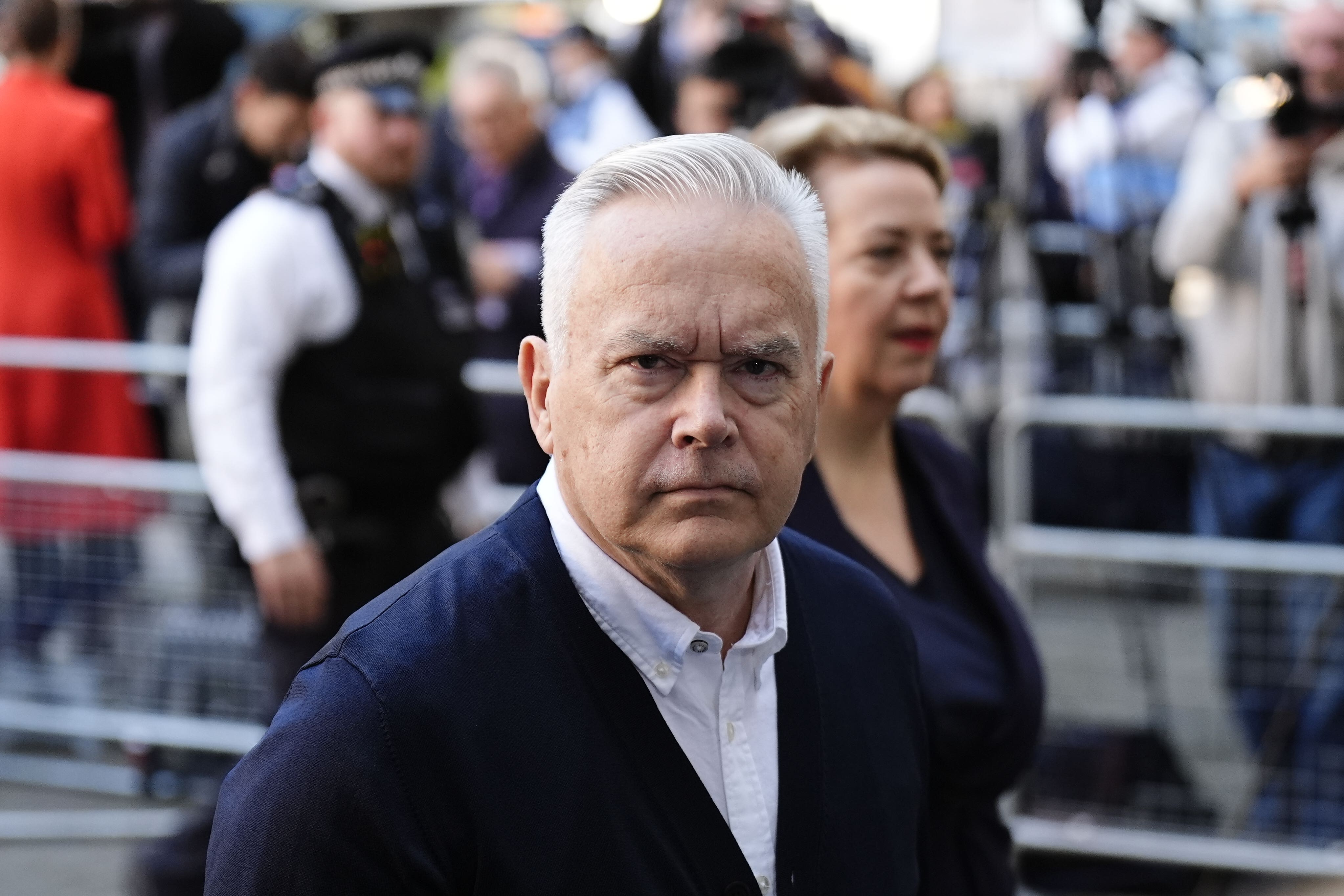I survived child sex abuse – here’s why Huw Edwards’s sentencing matters
I reported being abused at 13 but was actively discouraged from pursuing charges, writes Hannah Shewan Stevens. The ex-BBC presenter’s suspended sentence may sound shocking, but it’s hardly surprising


Social media is incandescent with rage about Huw Edwards’s suspended sentence, but I’m not remotely surprised. As a survivor of childhood sexual abuse who was actively discouraged from pursuing charges at all, I know it’s par for the course. This country is essentially on the edge of decriminalising childhood sexual abuse and possessing indecent imagery of children, just like it has with rape.
When I reported my abuse in the early 2000s, the social worker said she believed me. Under police questioning, my abuser admitted to most of the accusations. Despite this, the social worker said it would be my word against his and advised against taking it to court. I sacrificed justice in fear of being dragged through a court case that would end in my abuser walking free with a light sentence; or, worse, with a “not guilty” verdict.
If you’re a survivor of any form of sexual violence, the news of Edwards’s sentencing aligns with everything we already know about the justice system. It rarely enforces strict sentences on perpetrators of sexual violence or possession of indecent imagery – most cases don’t see the inside of a courtroom, let alone prison time.
Edwards received a six-month suspended sentence for receiving 41 indecent images of children, including Category A pictures of a child aged seven to nine years old. To me and others like me, this is proof of our society’s continued minimisation of the damage done to child sexual abuse survivors. We so rarely see justice, even when there’s a guilty plea.
Data shows that courts dropped approximately 13 per cent of indecent image cases in 2020. When the courts do receive a viable case, the perpetrator typically gets off with a light sentence and no prison time. According to the National Crime Agency, as many as eight in 10 people in the UK caught with images of children being sexually abused avoid jail.
So, Edwards is joining a cohort of abusers who leave courts in the UK with minimum sentences and their freedom largely intact every year. Comparatively, 99.1 per cent of similar offenders in the US go to prison, with an average sentence of 104 months.
Let’s look at what else he was given: Edwards also got seven years on the Sex Offenders Registry and a measly 40 days in a sex offender treatment programme. Treatment programmes are a crucial part of preventative work in child protection, but 40 days are surely not enough to make Edwards aware of the impact of his disgusting choices and ensure he does not re-offend.
Perhaps one of the worst aspects of this case, for survivors like me, is the ex-BBC presenter’s assertion that his poor mental health contributed to his actions.
After reporting my childhood abuser to social services as a young teenager, my social worker relayed his apparent remorse, too – as if that should absolve him of the years of abuse. He later used his religion to attempt to wash away the stain of paedophilia.
But – and this hardly needs saying – there is no circumstance that could ever excuse or mitigate the abuse of children. None. There is no dark day that causes a person to spontaneously develop paedophilic urges. There is no depressive low that makes it OK to receive indecent imagery of children in place of an anti-depressant. There is no evidence to suggest that being depressed makes you develop an unhealthy sexual interest in children.
And, to my mind, no amount of contrition can absolve someone of responsibility for their actions.
We need to place the victims front of centre of our outrage. Already, thousands of child abuse cases are facing delays. My case never made it to court, in part because I was told “it would be so traumatic” for me. Even as a naive 13-year-old child, I figured my abuser would likely escape prison with community service as soon as he expressed remorse, so I went along with the advice I was given.
Like so many child survivors, I thought my voice would hold less weight than an adult’s. No one encouraged me to speak up or signposted the support available. I didn’t know that I would be granted anonymity; I thought my face would be in the newspapers right next to his. I now know that living with his freedom is far more traumatic than any court case would have been. Every day, I still wonder if not pressing charges led to more children being abused at his hands.
But, like the courts so often do, I put my abuser’s freedom above my right to justice. I punished myself for his repulsive behaviour – and the shame silenced me for years. Now, when confronted with high-profile cases like Edwards’s, I am finally removing my gag and am determined to speak up for other survivors. We deserve justice.
I acknowledge that not all abusers can be sent to prison because our overworked prison system would collapse in the attempt. However, sentences like these need to reflect the lifetime impact on the victims. Edwards will move on with his life, eventually – but the children in the images he received will be forever haunted by it. I should know.






Join our commenting forum
Join thought-provoking conversations, follow other Independent readers and see their replies
Comments